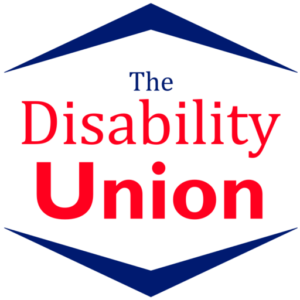
Warning: This may be a difficult article for some people to read. We are going to be dealing with religion and dissecting some contradictions in different aspects of faith. The point of this article is to highlight those contradictions, and is in no way meant to invalidate your beliefs. As with the last few articles, this article is based on the findings in chapter 4 of Nothing About Us Without Us: Disability Oppression and Empowerment by James Charlton.
Culture is everywhere, and everything. The food you ate for breakfast, the shirt you put on this morning, and even the fact that you’re reading this has all been influenced by your culture. Our views on disability are also influenced by our culture, which we have been discussing over the past few articles. James Charlton states that of the many factors that make up culture, there are three main pillars: language, body/image, and religion. We’ve discussed language and body image already. Now it’s time for religion. This is an extremely touchy subject, and one that I’m terrified to talk about. But it’s important, so here we go.
Two Factors
Different religions have a lot to say about disability. Most of the time, it boils down to “disability is bad”. Charlton postulates that there are two key ways disability and religion interact: First, disability is the result of something negative. Beit bad karma, sin, witchcraft, or even the deeds of a past life, disability is divine punishment. Second, religion puts emphasis on the destination — heaven, nirvana, etc. This is a place where we are free from our imperfections.
Some examples that Charlton gives are in both Buddhism and Christianity. Buddhists believe in reincarnation, and believe that disability is the result of something bad they did in their past life. Christianity, or at least some Christians, believe that letting Christ in your life can somehow heal the disabled person.
These ideas fundamentally contradict the attitudes of most disabled people, and their desire for acceptance. How can a Buddhist want to be accepted as a disabled person if they think that the reason they’re disabled is because they did something wrong? How can a Christian both want to be accepted as a disabled person yet pray every night to be healed?
The Bigger Picture
What these religious doctrines say and how believers act can differ sometimes. That’s why we have different kinds of Christianity, for example. The important thing to examine is not only what these doctrines say, but how they might influence other parts of society. Do they contribute or break down stereotypes of disability? Why or why not? What influence, if any, does the religion have on society and politics? Do these ideals help or hinder the disabled in your society?
Ultimately, religion is a tool. It helps people understand the world around them. Faith in something bigger, some master plan, and is comforting to many — myself included. But there are certain contradictions that can hinder people’s lives as disabled people, whether we want to acknowledge it or not. Faith is a huge part of culture, and influences everyone in almost every aspect of their life. Even people with no faith are influenced by their choice to not believe in something. Religion is important, but it’s also important to examine how our faiths view disability, and why.


